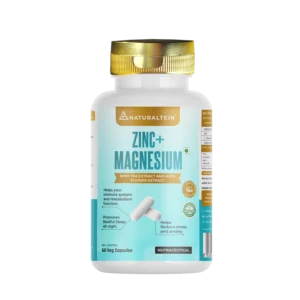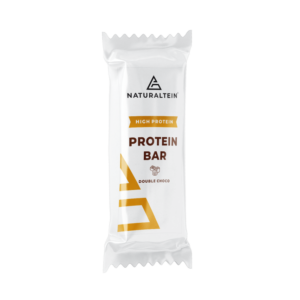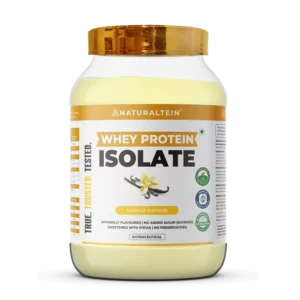Did you know that people with heart conditions favor omega-3 supplements? A survey shows more than 7% of American adults and about 1% of American children take omega-3 supplements containing fish oil, omega-3 fatty acids, and DHA. But do you know what is omega 3 supplements? Essential nutrients, such as omega-3 fatty acids, help prevent and treat heart disease.
The American Heart Association (AHA) advises everyone to consume fish at least twice a week, focusing on fatty cold water fish. The omega-3 fatty acids found in salmon, mackerel, herring, sardines, lake trout, and tuna are particularly abundant. Conversely, you might lose a lot of nutrients if you don’t like fish. Consequently, fish oil supplements can be the best choice for you. It is the best way to add omega-3s to your diet. Omega-3 benefits your eyes, heart, and skin as well.
If you are wondering what is omega 3 supplements and you are concerned about buying the best omega-3 supplements, check out NATURALTEIN for the best quality products. In fact a lot of users have recommended NATURALTEIN as one of the best omega 3 supplement brand in India.
What is Omega 3?
Omega-3 essential fatty acids have critical physiological functions and may benefit your health. You must obtain them from your diet because your body cannot produce them independently. Alpha-linolenic acid (ALA), docosahexaenoic acid (DHA), and eicosatetraenoic acid (EPA) are the three most significant types. While DHA and EPA are mostly found in foods from animals and algae, ALA is primarily found in plants. Common foods rich in omega-3 fatty acids include fish oils, flax seeds, chia seeds, and walnuts. Even those who prefer vegan diet can easily get hold of top vegan omega 3 supplements.
Types of Omega 3 Fatty Acids
We have three major kinds of omega-3 fatty acids.
ALA
ALA—or alpha-linolenic acid—is your diet’s most prevalent omega-3 fatty acid. Although it can be transformed into the biologically active forms of omega-3, EPA, and DHA, your body primarily uses it for energy. This conversion procedure, however, is ineffective. Likewise, foods such as walnut, hemp seeds, soybean, and flaxseed oil are rich in ALA.
EPA
The primary sources of EPA are fish oil and fatty fish. However, EPA is also present in some microalgae. It serves a variety of purposes in your body.
DHA
DHA is the most important omega-3 fatty acid in your body. It plays a crucial structural role in the brain, the retina of the eyes, and many other body parts. Grass-fed meat, eggs, and dairy products also frequently contain sizeable amounts. Similarly, vegans and vegetarians should take microalgae omega 3 fatty acids supplements to compensate for the lack of DHA they often experience in their diets.
Benefits and uses of omega-3 supplements for health
1. Omega-3s Can Fight Depression and Anxiety
Depression is one of the most typical mental illnesses in the world. Some signs include a general lack of interest in life and sadness. It’s interesting to note that research indicates regular omega-3 consumers have a lower risk of developing depression. Additionally, those who start taking the best omega-3 supplement experience a decrease in their symptoms of anxiety and depression. EPA seems to be the type that fights depression the best out of the three types—ALA, EPA, and DHA. According to one study, EPA is just as effective at treating depression as standard antidepressant medication. If you are not aware of what is omega 3 supplements you might be unaware of the omega 3 supplements benefits as well.
2. Omega-3s Can Improve Eye Health
So, is omega 3 supplements good for you? Well if you are looking for better eye health you should definitely get a supplement. The retina of your eye is primarily made up of DHA, an omega-3 fatty acid. Vision issues could develop if you consume less DHA. Intriguingly, consuming enough omega-3 is linked to a lower risk of macular degeneration. It is a significant cause of blindness. It causes irreversible eye damage worldwide.
3. Omega-3s Can help promote brain health
Omega-3 fatty acids are essential for infant brain development and growth. DHA constitutes about 40% of polyunsaturated fatty acid in the brain and 60% in the eyes. No doubt infants fed with DHA-based food have better vision than others. More intelligence, improved communication and social skills, fewer behavioral issues, a lower risk of developmental delay, and a lower risk of ADHD, autism, and cerebral palsy are just a few advantages that your child may experience if you consume enough omega-3s during pregnancy. So if you are wondering, what is omega 3 supplement, is omega 3 supplement good for pregnancy? Well, it is good for you and your child.
4. Omega-3s help improves the risks of heart disease
The two leading causes of death worldwide are heart attacks and strokes. Researchers discovered these diseases were uncommon in communities that consumed fish decades ago. This was later connected to eating omega-3 fatty acids. Omega-3 fatty acids have since been linked to several advantages for heart health.
Omega-3s may also help some people with their “bad” LDL cholesterol levels. However, there is conflicting evidence; some studies show increases in LDL. People looking for ways to treat heart problems often look up in Google about what is omega 3 supplements?
Despite this favorable effect on heart disease, there are certain risk factors. There is no solid proof that omega-3 fatty acids benefits include the prevention of heart attacks. The best omega 3 supplement bodybuilding are helpful to those looking to build muscles.
5. Omega-3s can reduce ADHD in children
ADHD is a behavioral disorder. Some of the common symptoms include inattention, hyperactivity, and impulsivity. According to several studies, children who have ADHD have lower levels of omega-3 fatty acids than their healthy peers. Omega 3 supplements in India are preferred by people and are quite affordable.
Omega-3 supplements have also been shown in numerous studies to reduce the symptoms and signs of ADHD. Omega-3 fatty acids help with task completion and distraction reduction. They also lessen hyperactivity, aggression, impulsivity, and restlessness.
6. Omega-3s Can Reduce Symptoms of Metabolic Syndrome
The word “metabolic syndrome” means a group of ailments. In addition to high blood pressure, insulin resistance, high triglyceride levels, and low “good” HDL cholesterol, it also includes central obesity, also referred to as belly fat. Because it raises your risk of developing many other diseases, such as diabetes and heart disease, it is a significant public health concern. In people with metabolic syndrome, omega-3 fatty acids can reduce insulin resistance, inflammation, and risk factors for heart disease.
7. Omega-3s Can Fight Inflammation
Your body naturally responds to infections and damage with inflammation. It is, therefore, essential for your health. However, inflammation can occasionally last long, even without an infection or injury. This is referred to as chronic or ongoing inflammation. There are several health benefits of omega-3 supplements.
Long-term inflammation is a factor in almost all chronic Western diseases, such as cancer and heart disease. Notably, inflammatory eicosanoids, cytokines, and other molecules and substances linked to inflammation can all be decreased by omega-3 fatty acids. If you are wondering what are omega 3 fatty acids you will be amazed to know about the huge range of benefits it has to offer.
8. Omega-3s Can Help Prevent Autoimmune Diseases
Autoimmune diseases make the immune system attack all the body’s healthy cells. This happens because it considers the cells foreign. One excellent illustration is type 1 diabetes, in which the immune system attacks the pancreatic cells that make insulin. Some of these diseases can be fought off by omega-3 fatty acids, which may be particularly crucial during infancy. Numerous autoimmune diseases, such as type 1 diabetes, autoimmune diabetes, and multiple sclerosis, have been linked to inadequate omega-3 fatty acid intake during the first year of life, according to studies. Additionally, omega-3s aid in treating psoriasis, lupus, rheumatoid arthritis, ulcerative colitis, and Crohn’s disease.
9. Omega-3s Can Improve Mental Disorders
Research shows that people with psychiatric disorders usually have lower levels of omega-3 fatty acids. According to a study, omega-3 supplements may help people with schizophrenia and bipolar disorder experience relapses and mood swings less frequently. Omega-3 fatty acid supplementation as well as vegan omega 3 supplements may also reduce aggressive behavior.
10. Omega-3s are effective against mental diseases
One of the inevitable effects of aging is a decline in mental capacity. Numerous studies link higher omega-3 intake to a decreased risk of Alzheimer’s disease and age-related cognitive degeneration. According to a review of carefully controlled studies, taking omega-3 supplements at the beginning of AD symptoms may be helpful. Remember that more study is required to determine the relationship between omega-3 fatty acids and brain health.
11. Omega-3’s May Help Prevent Cancer
Omega-3 fatty acids have long been thought to lower the risk of some cancers. It is what led to several deaths in the Western world. Interestingly, research indicates that people who consume the most omega-3s have a risk of colon cancer by up to 55% lower. Consuming omega-3s has also been linked to a lower risk of breast and prostate cancer in both women and men. But not all studies produce the same outcomes.
12. Omega-3’s Can Help Children With Asthma
Coughing, shortness of breath, and wheezing are some of the symptoms of the chronic lung disease known as asthma. Attacks with severe asthma can be hazardous. Additionally, over the past few decades, the prevalence of asthma has increased in the US. Numerous studies link omega-3 supplements intake to a reduced risk of asthma in kids and young adults.
Best Food Sources of omega-3 supplements
1. Mackerel
Mackerel are small, fatty fish commonly smoked and eaten as whole fillets. These are incredibly rich in nutrients. These fishes are delicious and require little to no preparation.
2. Salmon
Salmon is one of the most nutritious food. It contains high-quality protein and various nutrients, including large amounts of vitamin D, selenium, and vitamin B. As per research, people who include salmon in their regular diet often have less risk of heart disease, dementia, and depression.
3. Cod liver oil
In contrast to other foods, cod liver oil is more of a supplement. One tablespoon of this oil provides 170% of the Daily Value (DV) for vitamin D and 453% for vitamin A, both of which are abundant in this oil’s high omega-3 fatty acid content. As a result, consuming one tablespoon of cod liver oil will be more than sufficient to meet your needs for all three of these nutrients. To be careful, one should not consume more than one tablespoon of Vitamin A at once.
4. Herring
Medium-sized oily fish herring are often pickled or pre-cooked and sold as canned food. Smoked herring is popular breakfast food in countries such as England. It is rich in selenium, vitamin B12, and Omega 3 content. These are present in omega-3 supplements.
5. Oysters
Shellfish are rich in nutrients. Oysters have the highest zinc content of any food on the planet. Three ounces or 85 grams of six raw eastern oysters provide 289% of the daily value for zinc, 69% of the daily value for copper, and 567% of the daily value for vitamin B12. Many nations consider raw oysters to be a delicacy.
6. Sardines
They’re highly nutritious, especially when eaten whole. About 100-gram serving of drained sardines has over 370% of the daily value for vitamin B12, vitamin D, and selenium.
7. Anchovies
Anchovies are tiny, oily fish frequently purchased, dried, or canned.
It can be rolled around capers or stuffed into olives. It can be used as a pizza and salad topping. They are typically consumed in tiny amounts.
Due to their potent flavor, they have also been used to flavor various foods and sauces. Niacin, selenium, and calcium are all abundant nutrients in anchovies.
8. Caviar
Fish roe, or eggs, are what make up caviar. Caviar is a high-end food. Omega-3 fatty acids, as well as choline, are abundant in caviar.
9. Flaxseed
Flaxseeds are tiny brown or yellow seeds. They are the most abundant whole food source of the omega-3 fatty acid ALA. Flaxseed oil is a good example of omega-3 dietary supplement. Flaxseed is an excellent source of magnesium, fiber, and other nutrients. Compared to most other oily plant seeds, these have an ideal omega-6 to omega-3 ratio.
10. Chia seeds
Manganese, selenium, magnesium, and other nutrients are abundant in incredibly nutrient-dense chia seeds. Chia seeds typically contain 5 grams of protein. This includes all eight necessary amino acids in a 28-gram serving of natural omega-3 supplements.
Conclusion
As you can see, many whole foods have high omega-3 content. If you still don’t know about what is omega 3 supplements make sure to read the entire article. Numerous health advantages of omega-3s include their ability to decrease inflammation and reduce the risk of heart problems.
If you typically eat these foods, you may quickly meet your omega-3 needs. But if you are deficient in omega-three and do not consume much fish, you should take omega three supplements. Such supplements are readily available at a very affordable rate.Check out NATURALTEIN to learn more about the best natural omega-3 supplements and their pricing. You can get the best omega 3 supplement in india. An important dietary component, omega-3 fatty acids support healthy cell function throughout the body.
If you are wondering about omega-3 supplements benefits remember that omega 3 fatty acids are suitable for your brain and eyes. It provides essential nutrients to breastfeeding women and pregnant women as well. It is healthy for kids. The right amount of omega-3 intake can have significant health benefits for adults. Omega 3 fatty acids are effective against diseases like breast cancer, depression, ADHD, and inflammatory diseases. If you do not like eating fish or other kinds of omega-3, you can take supplements instead. The best omega-3 supplements are effective and affordable as well.
Omega-3s are essential nutrients present in food and are also available in supplements. Such nutrients help in building a healthy body. Every cell in your body needs these nutrients. Omega 3 is also an energy source and helps keep the heart, lungs, and blood vessels working as they should. However, omega-3 supplements side effects include bad breath, headache, nausea, etc.
You should take about 1 to 1.6 grams of omega-3 fatty acids daily. But the dosage is not the same for all. The amount of omega 3 needed varies from person to person. But, you might need to increase the dosage if you are pregnant or have any heart disease.
Omega 3 is highly nutritious. Having around 8 ounces of fatty fish per week can help you have enough nutrition in the body. So, you can add approximately 250 to 500 mg of omega supplements along with EPA and DHA to your diet.
You can take omega three at any time of the day. There is no such best time to eat omega 3 supplement. The main reason is that fish oil has several benefits, primarily associated with long-term usage. However, the best way to take it is by splitting it into two smaller doses. You can have one dose in the morning and the other at night. This will help reduce acid reflux.






Please mention the source of your omega 3
And also the form of fish oil. is it in triglyceride form?
Source is Salmon fish, and it is Triglyceride and not ethyl ester. Thank you!